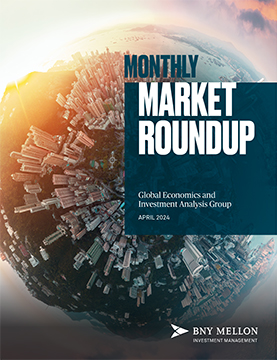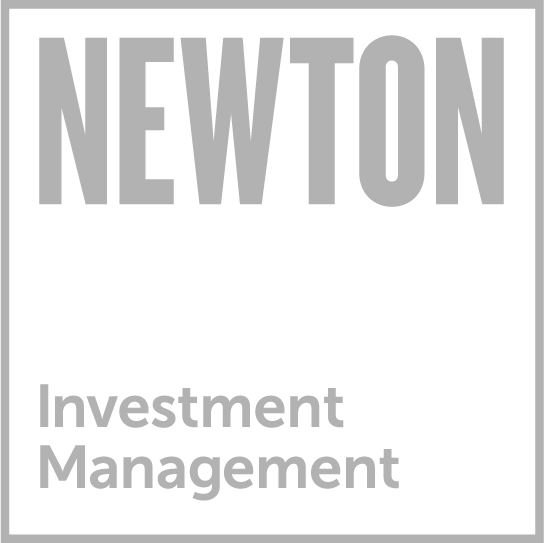Featured Insights

THE ALTA REPORT
A quarterly compilation of BNY Mellon perspectives derived from our unique vantage point at the intersection of markets.

AI Equity Impact: Already Irrational?
The market may surge in the next few years as AI benefits become clearer and the market prices more of the impact.
Monthly Market Roundup

July 2024
June 2024 Overview
Global equities held up quite well in June. The All-Country World Index (ACWI) rose 2.3% even amidst heightened political risks — with snap elections being called in France, a loss for the Conservative party being largely baked into market pricing in the UK, and setbacks for President Biden in his first televised debate raising the odds of discontinuity in US policies and regulations. But the run-up in global equities was narrow. It was mainly driven by 1) buoyant tech stocks which fueled the NASDAQ rally (up 6% in June); and 2) by emerging market (EM) equities (+4%) which showed further signs of de-coupling from China. Equities were down on the month in several areas: Europe (-1.4%) led by France (-6%), China (-1.8%) and even US small caps (-0.9%).
Find out morePoints of View

Points of View: On the cusp of a productivity boom?
The promise of AI (and other reasons for optimism)

Points of View: Economic outlook, central bank stances diverge
Divergent inflation and growth dynamics have and will continue to position major central banks along contrasting...

A Deep Dive into QT
In this third note of three, we review the arguments behind these opposing views in the previous two, in the hope to...

Could QT lead to a steeper yield curve?
In the first note in a series of three on QT we argued that QT will most likely contribute to a flattening of the yield...

The Impact of QT on Financial Markets
We have written extensively on our expectations for future rate hikes and the peak in US rates. In this paper, the...

Yield Curve Inversion... This Time Is Not Different
We believe the possibility of a recession in the US over the coming two to three years is increasing. As such, we take...
Global Economics and Investment Analysis Group
Meet the minds behind the research.



Keith Collier, CFA
Head of Asset Allocation Research



Ryan Milgrim, CFA
Senior Research Analyst
MARK-487914-2024-01-24






